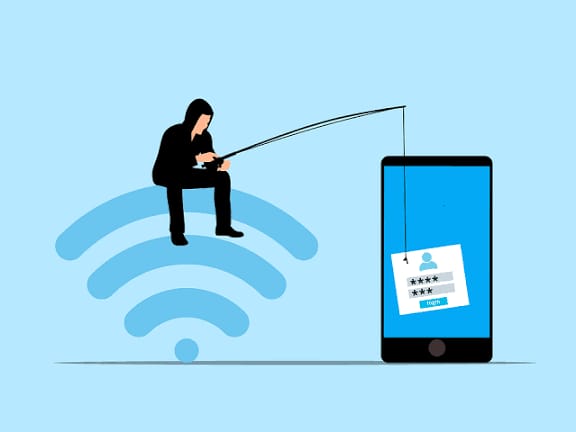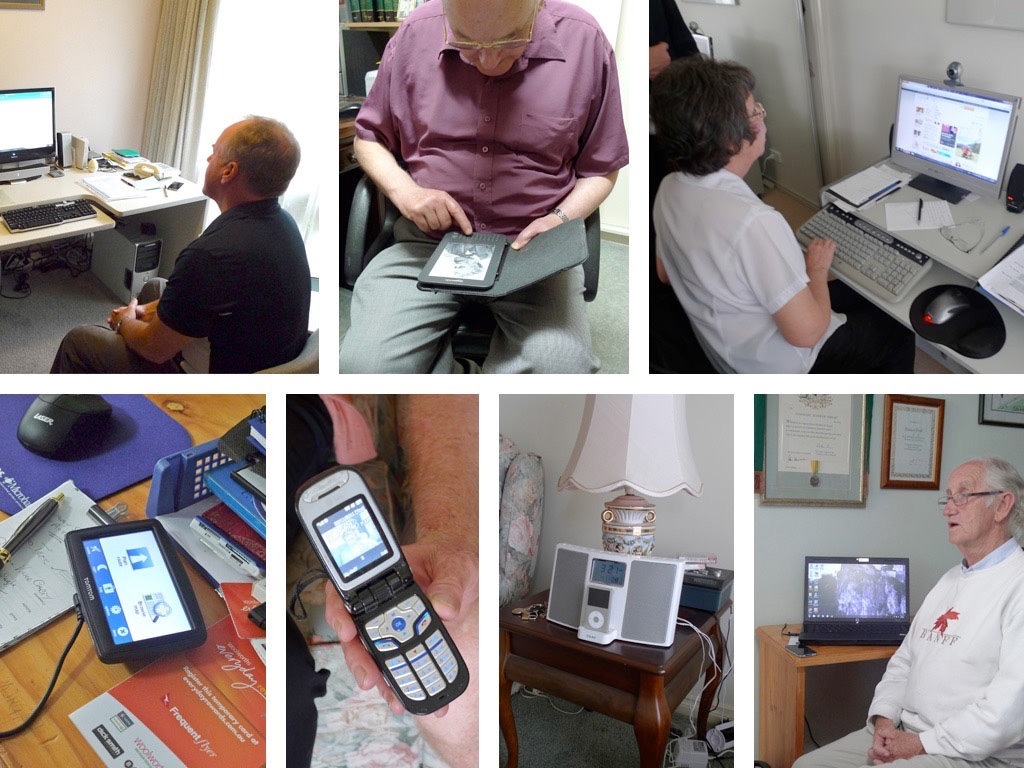
Importance of Cyber Hygiene in the Digital Age
Cyber hygiene is essential in today’s digital world where cyber threats are increasingly sophisticated and widespread. It involves daily habits and proactive steps like using strong passwords, updating software, avoiding phishing scams, and backing up data. Tools like antivirus software and two-factor authentication strengthen digital defenses. Educating users about threats and avoiding risky behaviors such as using public Wi-Fi without protection further enhance safety. Practicing cyber hygiene
✨ Raghav Jain

Introduction
We live in a world where our lives are deeply connected to digital systems. From shopping and banking to chatting with friends and working remotely, almost every aspect of our daily routine involves the internet. But as digital dependence grows, so does the threat to our personal and professional data. Cyber threats, identity theft, phishing attacks, malware, and data breaches have become common—making cyber hygiene more crucial than ever.
Just like brushing your teeth protects your health, practicing good cyber hygiene protects your digital well-being. Whether you're an individual, a business owner, or a student, understanding and applying basic cyber hygiene practices can save you from financial losses, stress, and reputational damage.
In this article, we will explore the importance of cyber hygiene, what it involves, how it can be practiced, and why it's a non-negotiable habit in today’s digital age. In the rapidly evolving and increasingly interconnected digital age of 2025, where individuals and organizations are more reliant than ever on technology for communication, commerce, education, and countless other aspects of daily life, the importance of robust cyber hygiene cannot be overstated. Cyber hygiene, akin to personal hygiene practices that safeguard physical health, encompasses the routine practices and precautions that individuals and organizations adopt to maintain the security and integrity of their digital assets and protect themselves from a wide range of cyber threats. Neglecting cyber hygiene in this hyper-connected era can lead to severe consequences, including data breaches, financial losses, identity theft, reputational damage, and disruption of critical services. As the sophistication and frequency of cyberattacks continue to rise, cultivating and consistently practicing good cyber hygiene has transitioned from being a mere recommendation to an absolute necessity for navigating the digital landscape safely and securely. Embracing a culture of proactive cyber hygiene is not just the responsibility of IT professionals; it is a shared responsibility that extends to every individual and every employee within an organization. The fundamental importance of cyber hygiene in the digital age stems from its ability to mitigate a multitude of risks, enhance overall security posture, protect sensitive information, ensure business continuity, maintain trust and reputation, comply with regulations, reduce the impact of cyber incidents, foster a security-conscious culture, safeguard personal and financial well-being, and contribute to a more secure digital ecosystem for all.
One of the most fundamental reasons why cyber hygiene is paramount in the digital age is its direct impact on mitigating the ever-increasing array of cyber risks. The threat landscape is constantly evolving, with cybercriminals developing increasingly sophisticated techniques to exploit vulnerabilities in systems and human behavior. Good cyber hygiene practices, such as regularly updating software and operating systems, using strong and unique passwords, enabling multi-factor authentication, and being vigilant against phishing attempts, act as crucial first lines of defense against these threats. By consistently implementing these basic yet effective measures, individuals and organizations can significantly reduce their attack surface and make it more difficult for malicious actors to gain unauthorized access to their digital assets.
A strong foundation of cyber hygiene is essential for enhancing the overall security posture of both individuals and organizations. It involves establishing and adhering to a set of best practices that minimize vulnerabilities and strengthen defenses against cyberattacks. This includes implementing firewalls and intrusion detection systems, regularly backing up critical data, practicing the principle of least privilege (granting only necessary access), and segmenting networks to limit the impact of a potential breach. By proactively implementing these measures as part of their cyber hygiene routine, organizations can build a more resilient and secure digital environment.
In the data-driven world of 2025, the protection of sensitive information is of paramount importance, and good cyber hygiene plays a critical role in achieving this. Whether it is personal data, financial information, intellectual property, or confidential business communications, the consequences of a data breach can be severe. Cyber hygiene practices such as encrypting sensitive data both at rest and in transit, implementing strict access controls, and securely disposing of old hardware and data storage devices are essential for safeguarding valuable information from unauthorized access and theft.
For organizations, maintaining business continuity in the face of cyber threats is a critical concern. Cyberattacks can disrupt operations, lead to downtime, and result in significant financial losses. Implementing robust cyber hygiene practices, including regular data backups and disaster recovery plans, ensures that organizations can quickly recover from a cyber incident and minimize disruption to their core business functions. This proactive approach to resilience is a key aspect of good cyber hygiene in the digital age.
Trust and reputation are invaluable assets for both individuals and organizations in the digital realm. A data breach or a successful cyberattack can severely damage trust and erode reputation, leading to loss of customers, business opportunities, and public confidence. Demonstrating a commitment to good cyber hygiene practices can help build and maintain trust by assuring stakeholders that digital assets are being handled securely and responsibly.
Many industries and jurisdictions are subject to various data protection regulations and compliance requirements. Implementing and adhering to good cyber hygiene practices is often a prerequisite for meeting these regulatory obligations. Failure to do so can result in significant fines, legal repercussions, and further damage to reputation. Therefore, cyber hygiene is not just a matter of security; it is also a matter of legal and regulatory compliance.
Even with the best preventative measures in place, cyber incidents can still occur. However, good cyber hygiene practices can significantly reduce the impact and cost of such incidents. Having well-defined incident response plans, regularly backing up data, and practicing data recovery procedures ensures that individuals and organizations can respond effectively to a cyberattack, minimize damage, and restore operations quickly.
Cultivating a security-conscious culture within an organization is a crucial aspect of good cyber hygiene. This involves educating employees about cyber threats, training them on best practices, and fostering a sense of shared responsibility for maintaining a secure digital environment. Regular security awareness training, phishing simulations, and clear policies on acceptable use and data handling are essential components of building a security-conscious culture that underpins effective cyber hygiene.
For individuals, practicing good cyber hygiene is essential for safeguarding their personal and financial well-being in the digital age. This includes protecting their online accounts from unauthorized access, preventing identity theft, securing their financial information, and avoiding online scams and fraud. By adopting simple yet effective cyber hygiene habits, individuals can significantly reduce their risk of becoming victims of cybercrime.
Finally, the collective practice of good cyber hygiene by individuals and organizations contributes to a more secure digital ecosystem for all. When everyone takes responsibility for their digital security, it creates a more resilient and less vulnerable online environment. This reduces the overall opportunities for cybercriminals and helps to protect the interconnected digital infrastructure that underpins so much of modern society.
In conclusion, the importance of cyber hygiene in the digital age of 2025 cannot be overstated. It is a fundamental necessity for mitigating risks, enhancing security posture, protecting sensitive information, ensuring business continuity, maintaining trust and reputation, complying with regulations, reducing the impact of cyber incidents, fostering a security-conscious culture, safeguarding personal and financial well-being, and contributing to a more secure digital ecosystem. In an era where cyber threats are constantly evolving and becoming more sophisticated, the consistent and diligent practice of good cyber hygiene is not just a best practice; it is a crucial element of digital survival and prosperity for individuals and organizations alike. Embracing a proactive and comprehensive approach to cyber hygiene is an investment in a safer, more secure, and more resilient digital future.
What Is Cyber Hygiene?
Cyber hygiene refers to the set of habitual practices and precautions that users follow to ensure the safety, security, and maintenance of their devices and digital data. It's about building a healthy routine to protect against cyber threats—just like personal hygiene prevents illness.
Good cyber hygiene includes actions like:
- Using strong passwords
- Updating software regularly
- Avoiding suspicious links or attachments
- Enabling multi-factor authentication
- Backing up important data
In essence, cyber hygiene is a preventive measure that ensures your digital environment remains clean, secure, and less vulnerable to threats.
1. Rising Cyber Threats in the Digital Age
Cybercriminals are getting smarter. The cybercrime industry is booming, with attackers using sophisticated techniques like AI-driven malware, ransomware-as-a-service, and deepfake scams.
Some alarming statistics:
- Every 39 seconds, a cyberattack happens somewhere in the world.
- Phishing attacks increased by over 60% globally in the last year.
- In 2023, global data breaches cost businesses an average of $4.45 million per incident.
This rise in digital threats means that basic cyber hygiene isn’t optional—it’s essential for survival in the modern world.
2. Protecting Personal Data and Privacy
Your digital devices store massive amounts of sensitive information—photos, passwords, bank details, and personal conversations. Without proper cyber hygiene, this data becomes an easy target for hackers.
Here’s how poor habits can compromise your privacy:
- Reusing passwords makes all your accounts vulnerable if one is breached.
- Clicking unknown links can install spyware without your knowledge.
- Failing to use antivirus or firewalls can allow hidden malware to enter your system.
Practicing cyber hygiene ensures that your personal data remains private, encrypted, and inaccessible to cybercriminals.
3. Preventing Identity Theft
One of the most damaging consequences of poor cyber hygiene is identity theft. Cybercriminals can steal your digital identity and use it to:
- Apply for loans or credit cards in your name
- Commit online fraud
- Access your medical records
- Ruin your online reputation
Simple practices like monitoring your digital footprint, being cautious on social media, and using secure Wi-Fi networks can protect your identity and keep imposters at bay.
4. Securing Financial Transactions
Digital wallets, online shopping, mobile banking—these conveniences come with risks. Without proper cyber hygiene, your financial information can easily fall into the wrong hands.
Key hygiene tips for financial security:
- Always log out of banking apps when not in use.
- Use only verified and secure websites for transactions.
- Avoid public Wi-Fi while shopping or banking online.
- Use one-time passwords (OTPs) and biometric verification.
By following these steps, you ensure that your money stays safe and cybercriminals can’t hijack your financial transactions.
5. Ensuring Safe Use of Social Media
Social media is a goldmine for hackers. They use it to collect information, spread misinformation, and even run scams. Practicing cyber hygiene helps protect your digital presence and the people you interact with online.
Best practices include:
- Avoid sharing personal details like birthdates, home addresses, or travel plans.
- Regularly review privacy settings.
- Don’t accept friend requests from unknown people.
- Beware of fake job offers and investment schemes.
Remember, your online profile can be cloned or misused. Being mindful of what you share is an essential part of cyber hygiene.
6. Strengthening Business and Workplace Security
For businesses, cyber hygiene is not just an IT issue—it’s a core business strategy. A single cyber breach can cost millions, disrupt operations, and erode customer trust.
Key workplace hygiene practices include:
- Employee training on phishing and data handling
- Using endpoint protection tools
- Creating regular data backups
- Implementing access control policies
- Keeping all business software up-to-date
Companies must cultivate a culture of cybersecurity, where everyone, from interns to CEOs, understands the importance of digital responsibility.
7. Supporting Remote Work and Online Learning
The shift to remote work and online education during the pandemic has made cyber hygiene even more critical. Home networks and personal devices are often less secure than office infrastructure, making users vulnerable.
Cyber hygiene tips for remote settings:
- Use VPNs for secure access to work systems
- Enable firewalls and antivirus software on personal devices
- Keep your Zoom, Teams, and Google Meet apps updated
- Be cautious while sharing screens or documents online
Whether you're working from home or attending online classes, cyber hygiene keeps your digital workspace secure and professional.
8. Building a Resilient Cyber Future
Good cyber hygiene today helps build a resilient tomorrow. With the rise of technologies like AI, IoT, blockchain, and quantum computing, the digital attack surface will only grow.
Developing consistent cyber hygiene habits:
- Reduces future risks
- Builds cyber-awareness in society
- Encourages innovation without fear
- Strengthens trust in digital systems
Governments and global organizations are increasingly urging citizens to adopt basic cybersecurity habits as part of national digital health.
9. Encouraging Digital Literacy and Awareness
Cyber hygiene isn’t just about tools—it’s also about mindset. Many people fall for scams or hacks simply because they aren’t aware of the risks. Digital literacy plays a big role here.
Key ways to spread awareness:
- Schools and colleges should teach basic cybersecurity.
- Businesses should offer ongoing cyber training.
- Influencers and creators can promote secure online behavior.
- Governments can run digital safety campaigns.
When everyone understands and practices cyber hygiene, the entire digital ecosystem becomes safer.
10. Easy Steps to Practice Cyber Hygiene Daily
To wrap it up, here are simple habits you can follow every day to stay cyber safe:
✅ Use complex, unique passwords for each account
✅ Enable two-factor authentication (2FA)
✅ Don’t click suspicious links or open unknown attachments
✅ Keep all apps, browsers, and operating systems updated
✅ Install and update antivirus/anti-malware software
✅ Regularly back up your data to the cloud or external drive
✅ Clear your browser history and cache periodically
✅ Log out of accounts when not in use
✅ Avoid using unsecured public Wi-Fi
✅ Be skeptical of offers that sound too good to be true
These habits may seem small, but they go a long way in protecting your digital life.
Conclusion
In an age where our phones are smarter than ever and everything is connected to the internet, cyber hygiene is not just a good habit—it’s a life skill. Whether you're browsing the web, working from home, managing a business, or just scrolling through Instagram, your actions matter.
Neglecting cyber hygiene can lead to identity theft, financial loss, privacy breaches, and even national security threats. But by taking proactive steps and spreading awareness, we can create a safe, secure, and empowered digital society.
The digital age is here to stay—let's make sure we're protected as we grow with it.
Q&A Section
Q1: What is cyber hygiene and why is it important?
Ans: Cyber hygiene refers to the regular practices and precautions users take to ensure digital safety and security. It helps protect sensitive data and systems from cyber threats like malware, phishing, and hacking.
Q2: How can strong passwords contribute to good cyber hygiene?
Ans: Strong passwords prevent unauthorized access by making it difficult for hackers to guess or crack them. Using complex and unique passwords for each account enhances personal security.
Q3: Why is updating software regularly essential for cyber hygiene?
Ans: Software updates often contain patches for security vulnerabilities. Regular updates protect systems from known threats and enhance overall performance and safety.
Q4: What role does antivirus software play in maintaining cyber hygiene?
Ans: Antivirus software detects, blocks, and removes malicious software. It acts as a first line of defense against viruses, ransomware, and spyware.
Q5: How can phishing attacks be avoided through cyber hygiene?
Ans: Practicing cyber hygiene includes being cautious of suspicious emails, links, and attachments. Verifying the source before clicking helps prevent falling victim to phishing scams.
Q6: Why is backing up data an important cyber hygiene habit?
Ans: Regular data backups ensure that important files can be recovered in case of cyberattacks, system crashes, or accidental deletions, minimizing loss.
Q7: How does using public Wi-Fi pose a threat to cyber hygiene?
Ans: Public Wi-Fi is often unsecured, making it easy for hackers to intercept data. Using VPNs or avoiding sensitive transactions on public networks enhances safety.
Q8: What is two-factor authentication (2FA) and how does it support cyber hygiene?
Ans: 2FA adds an extra layer of security by requiring a second form of verification (like a code or fingerprint), reducing the chances of unauthorized access.
Q9: Why is educating users about cyber threats a key aspect of cyber hygiene?
Ans: Awareness helps individuals recognize and avoid potential threats. Educated users are less likely to make security mistakes and more likely to report suspicious activity.
Q10: What are some daily practices to maintain good cyber hygiene?
Ans: Daily practices include logging out of accounts, clearing browser history, avoiding suspicious downloads, and regularly scanning devices for malware.
Similar Articles
Find more relatable content in similar Articles

Digital Privacy in 2025: How S..
In 2025, digital privacy faces.. Read More

From Phishing to Data Theft: ..
Cybercrime in India is evolvi.. Read More

Cloud PCs: Will Your Next Comp..
Cloud PCs are transforming the.. Read More

Digital inclusion: designing d..
Designing technology for elder.. Read More
Explore Other Categories
Explore many different categories of articles ranging from Gadgets to Security
Smart Devices, Gear & Innovations
Discover in-depth reviews, hands-on experiences, and expert insights on the newest gadgets—from smartphones to smartwatches, headphones, wearables, and everything in between. Stay ahead with the latest in tech gear
Apps That Power Your World
Explore essential mobile and desktop applications across all platforms. From productivity boosters to creative tools, we cover updates, recommendations, and how-tos to make your digital life easier and more efficient.
Tomorrow's Technology, Today's Insights
Dive into the world of emerging technologies, AI breakthroughs, space tech, robotics, and innovations shaping the future. Stay informed on what's next in the evolution of science and technology.
Protecting You in a Digital Age
Learn how to secure your data, protect your privacy, and understand the latest in online threats. We break down complex cybersecurity topics into practical advice for everyday users and professionals alike.
© 2025 Copyrights by rTechnology. All Rights Reserved.